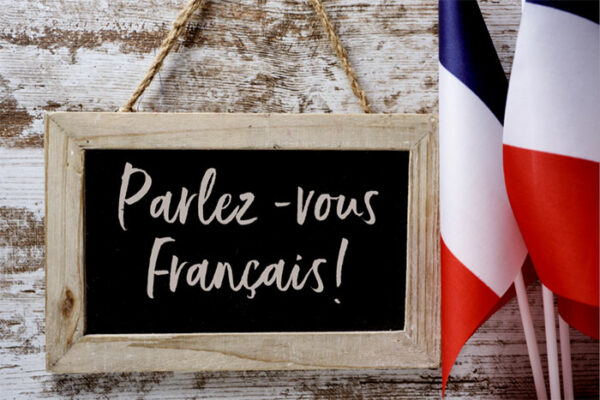Seven Words That Say So Much
Pronounce these seven words properly in French, and you’re well on your way to speaking the language. Give them a go but watch out – they may look familiar but they contain some tricky tongue twisters.
1. Restaurant
This word sounds quite different from the English when pronounced in its original French. The French r – a raspy sound in the back of the throat – is much more noticeable than an English r. Restaurant also contains:
- au pronounced o
- a followed by n, pronounced aw
- silent t at the end of the word
In fact, if you can pronounce rrres-to-rrrawn, then bravo, you’re on your way to correct French pronunciation – and possibly a good meal.
2. Café au lait
Whether it’s café au lait or café crème, thé, vin or de l’eau, ordering beverages is a daily exercise in French pronunciation.
Vowels:
- é, accent aigu, pronounced ay
- è, accent grave, pronounced eh
- ai sounding like eh in lait (with a silent t)
- eau is simply oh, unless you want it bubbly, or pétillant, in which ll is pronounced y, so it’s pay-tee-yawn.
Consonants:
- th pronounced as t
- the i followed by n in vin is pronounced, unlike other final consonants
- if you want vin du pays, pronounce it payee with a silent s.
3. Haute couture
There are lots of useful vowel and consonant pronunciations to learn here.
The French h
When h begins a word, it can be:
- aspirate, as in haute
- silent as in l’homme
Note that in haute the t is not silent because it is followed by an e.
The French c
The c in couture is pronounced like k when followed by o, a or u, but like s when followed by e, i or y. C with a cedilla (ç) is also an s sound, as in garçon.
The French u
The ou in couture is simply pronounced oo, but the solo u is a challenge – it requires that you pucker your lips and make a sharp ee sound at the front of your mouth. This is also how you pronounce the u in rue, so it’s a useful one to get right.
4. Concierge
Concierge brings you the c pronounced both ways – and billets de théâtre too, if you ask for them. That’s billets pronounced be-yay. Théâtre starts with th pronounced as t and é is eh, â is ah, and the re sounds slightly clipped, as in sucre, poudre, descendre and vendre.
5. Monsieur
Monsieur is pronounced nothing like it looks. Mon sounds like muh and sieur sounds like syuh spoken with puckered lips. Put them together for muh-syuh. You may be tempted to ask for Madame instead but practice makes perfect.
6. Magnifique
The gn in magnifique sounds like n and is useful to learn since it occurs in words like oignon, champignon and champagne.
Qu is pronounced k in this context with the final e silent. In a phrase like qu’est-ce-que c’est, que is combined with est and pronounced k at the beginning of the phrase and kuh at the end.
7. Oeil de boeuf
In this very Parisian architectural feature, literally eye of bull, oeil is pronounced oy with a silent l and boeuf sounds something like buf – unlike most final consonants, the f is pronounced.
This also occurs in oeuf, but in the plural, boeufs or oeufs, the f and s are both silent. The plural oeil is yeux with a silent x.
Two more French pronunciation tips to remember:
- Stress is put on a particular syllable in English (concert, dentist), but in French each syllable is pronounced with the same intensity.
- Liaison is used when a normally silent consonant precedes a word starting with a vowel or silent h, as in petit ami, pronounced puh-teet-ah-mee, and les hôtels, pronounced layz-oh-tel.
And, don’t forget, practice makes perfect. Or, as they say en français, la pratique rend parfait. With a silent t, of course.




collins_dictionary_official
The home of living language. #wotd #wordlovers #collinsdictionary
Read our word of the week definitions and blog posts: